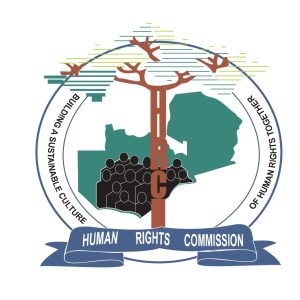
Human Rights Commission established
The Human Rights Commission was established through the recommendation by the Munyama Commission of Inquiry set up by former President Fredrick Chiluba in 1993 to probe allegations of human rights violations in the country since 1972

Amendments were made to the Constitution
Following the Munyama Commission’s recommendation, the Human Rights Commission was established after amendments were made to the Constitution, providing for a permanent Human Rights Commission under Article 125, which led to the enactment of the Human Rights Commission Act No. 39 of 1996 spelling out the broad mandate of the Commission to promote and protect human rights for all people in the country.

The Human Rights became operational
The Human Rights became operational in 1997. Since inception, the Commission has been carrying out this mandate through investigation of cases of alleged human rights human rights violations; vitiations to prisons, correctional facilities and other places of detention; human rights education; and research into human rights issues.

Establishment of the Commission by the Constitution.
In 2016, the Constitution of Zambia was again amended through Act No. 2 of 2016 Article 230 (1) the Human Rights Commission providing that “there is established the Human Rights Commission which shall have offices in the Provinces and progressively in districts”. The Commission has the constitutional mandate to ensure the Bill of Rights, which is under part III of the Constitution, is upheld and protected. Aligned with its constitutional mandate, the Commission has specific statutory functions provided for under various pieces of legislation including the Human Rights Commission Act, No. 4 of 2024 and the Access to Information Act, No. 24 of 2023.

Enhanced mandate through enactment of Access to Information Act, No. 24 of 2023
The enactment of the Access to Information Act, No. 24 of 2023 imbued the Commission with the oversight role in the implementation of the Access to Information Act. This Act further empowered the Commission to exercise quasi-judicial powers by hearing and determining appeals from information requesters against decisions of information holders.

Repeal and replacement of the Human Rights Commission Act, No. 39 of 1996 effective in 2024
In 2024, the Human Rights Commission Act, No. 4 of 2024 repealed and replaced the Human Rights Commission Act, No. 39 of 1996. The new Act of 2024 imbued the Commission with separate legal personality by providing that the Commission is a body corporate with perpetual succession and a common seal, capable of suing and being sued in its corporate name, and with power, subject to the provisions of the Act, to do all acts and things that a body corporate may, by law, do or perform.
The new Act of 2024 empowering to undertake strategic litigation for, or on behalf of, a victim or complainant in providing redress.

